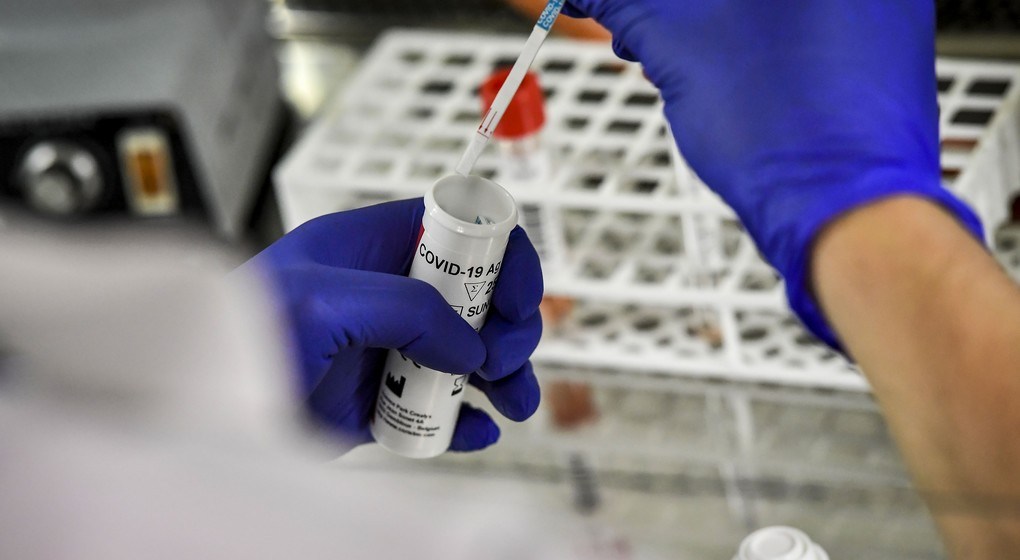A second infection with the Omicron coronavirus variant has been identified in Belgium, and the number of cases could rise in the coming hours, announced several experts via Twitter.
The second Omicron case is unrelated to the first, says virologist Marc Van Ranst, who added that the national reference laboratory is currently "examining other suspect samples."
Een tweede omikron-geval werd gedetecteerd in ons land, ongerelateerd aan het eerste geval. Het nationaal referentielaboratorium onderzoekt momenteel nog andere verdachte stalen.
— Marc Van Ranst (@vanranstmarc) December 1, 2021
The new infection was found in someone living in the French-speaking part of Belgium who has not been abroad recently, but has been in contact with someone who had been travelling, Van Ranst specified to VRT.
"The exact circumstances still have to be investigated," he said, adding that the infected person has only mild symptoms and has been vaccinated.
According to microbiologist Emmanuel André, who is in charge of the national Covid-19 reference laboratory, the number of Omicron cases "might reach ten in the coming hours" as researchers are still "awaiting sequencing results."
Now 2 confirmed Omicron cases in Belgium. These two patients are not linked. This number might reach 10 in the coming hours. Awaiting sequencing results.
— Emmanuel André (@Emmanuel_microb) December 1, 2021
Just under a week ago, on 26 November, a first infection with the Omicron variant was discovered in Belgium.
The variant, also known as B.1.1.529, was discovered by researchers in South Africa, but that does not necessarily mean that the variant originated there.
Not jumping to conclusions
Despite a lot of speculation from experts in Belgium and the rest of the world, not a lot is known about the Omicron variant at the moment, so it is important not to jump to conclusions too fast, virologist Steven Van Gucht told The Brussels Times.
"In essence, we know very little about this variant. We do not know yet whether it is more infectious, and if it is, we do not know how much," he said. "We do not know whether it causes a different course of the disease and we do not know whether it will really break through."
This variant was discovered in South Africa, "and next month, or even tomorrow, another one might be discovered somewhere else," Van Gucht said. "This is quite normal, but a lot of research is still needed to better understand this one."
Virologists have to do their job now and look at the characteristics of the variant, he stressed. "It has a lot of mutations, but we do not really know this variant yet. The most important question is how well our vaccines still protect against this variant."
While a number of quick results will be coming from labs now, those are only a small part of the story, emphasised Van Gucht. "You also need to see what happens in the field: to what extent are vaccinated people still protected against severe illness?"
That data will come from South Africa, but very likely also from other countries. "Now that everyone is looking for it, I think that Omicron will be found everywhere in the world. But that does not necessarily mean that it will cause the next big wave. It is possible, but it is definitely not guaranteed."

